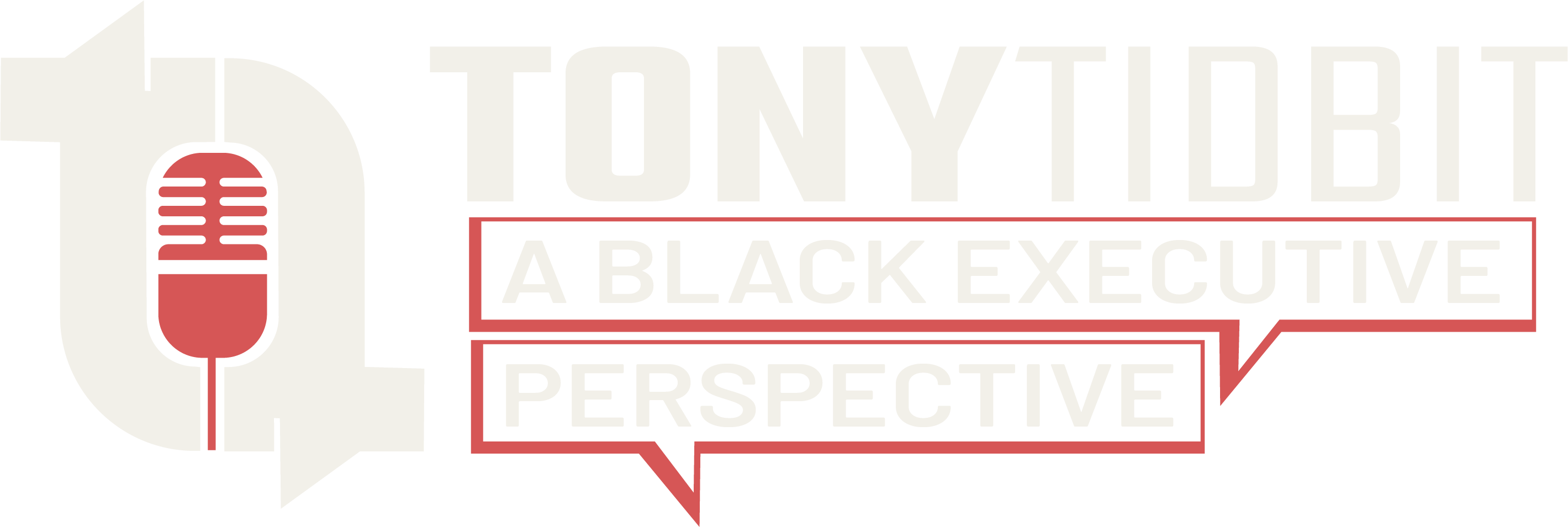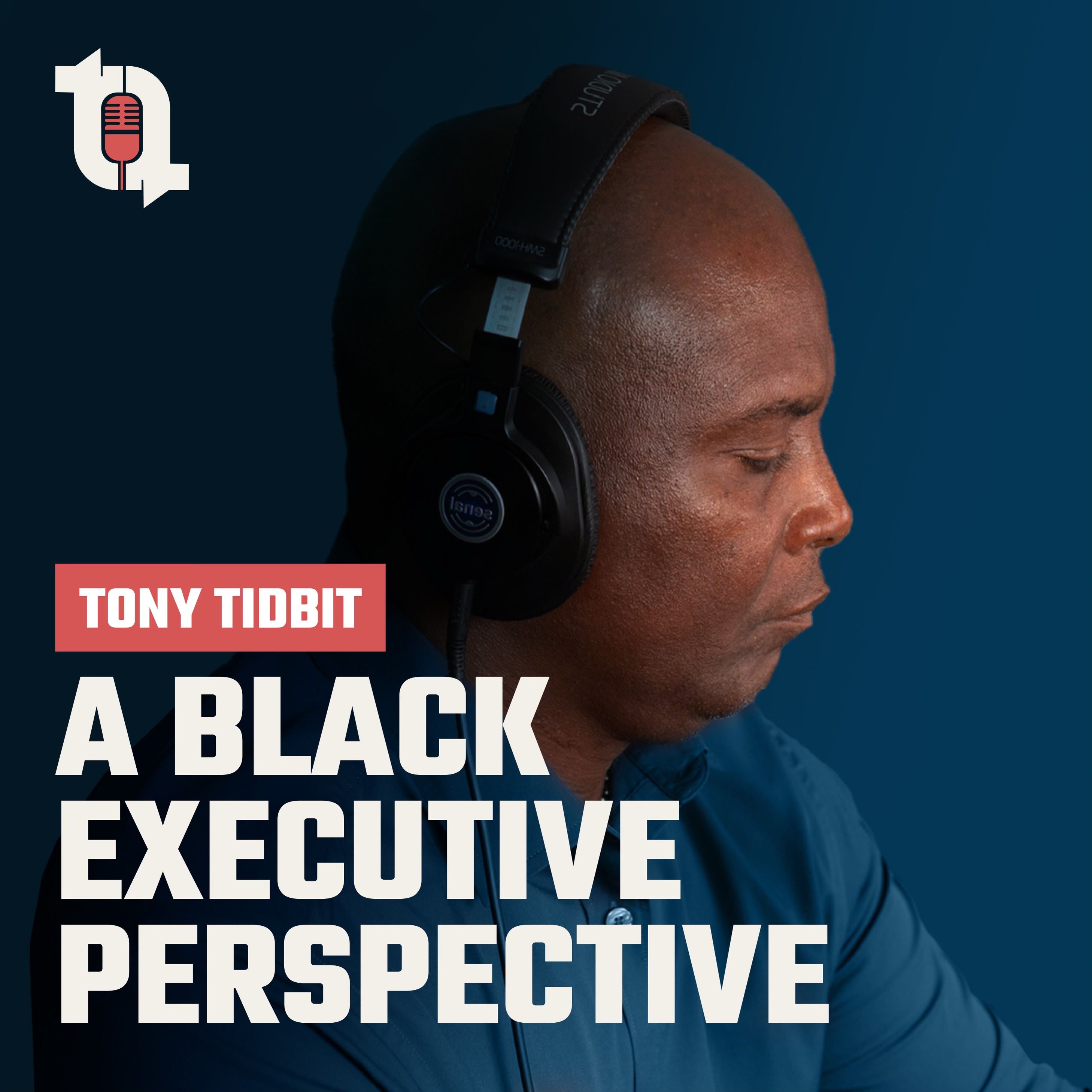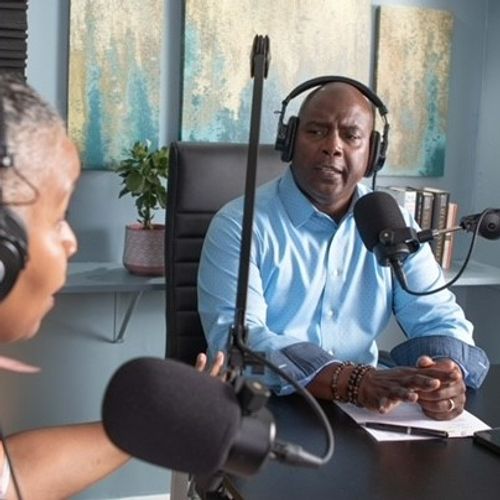Race and Media: Kamala Harris's Fight for Fair Representation
Episode Title:
Episode Audio Link: https://podcast.ablackexec.com/episode/Race and Media: Kamala Harris's Fight for Fair Representation
Episode Video Link:
In this episode of Need to Know, Dr. Nsenga Burton discusses the crucial issue of race and media within the context of the current U.S. presidential election. Highlighting Vice President Kamala Harris's cautious approach to media interviews, Dr. Burton explores the biases and narrative control within mainstream media outlets. The episode brings to light the distinct challenges Black women face in media representation and urges the importance of choosing fair and accurate media channels for interviews to prevent misrepresentation. Tune in for an insightful discussion on the intersections of race, gender, and media.
▶︎ In This Episode
- 00:00: Introduction to Need to Know
- 00:20: Race and Media in the U.S. Presidential Election
- 00:30: Kamala Harris and Media Coverage
- 01:21: Media's Treatment of Black Women
- 03:15: Comparison with Coverage of White Women
- 04:54: The Right to Control the Narrative
- 05:42: Freedom of Speech and Media Responsibility
- 07:12: Conclusion and Final Thoughts
- 08:08: Closing Remarks
🔗 Resources
Links and resources mentioned in this episode:
🔔 Listen and Subscribe
Listen to this episode and subscribe for future updates
subscribe to A Black Executive Perspective podcast on
- YouTube Podcasts
- Apple Podcasts
- Spotify Podcasts
- Amazon Music
- Other platforms or by searching "TonyTidbit"
if you like what we're doing and would like to support us, here's some ways you can help us continue the uncomfortable conversations that drive change
- subscribe to our newsletter
- give us up to a 5 star review on Apple Podcasts
- share an episode with a friend, family member or colleague
🗣️ Follow @ablackexec
follow us across social media @aBlackExec
⭐️ Follow @TonyTidbit
follow Tony across social media @TonyTidbit
This episode was produced by TonyTidbit ™ . Copyright © 2024 A BLACK EXECUTIVE PERSPECTIVE LLC. All rights reserved. No part of this podcast may be reproduced without prior written permission. For permissions, email podcast@ablackexec.com .
Transcript
A Black Executive Perspective now presents Need to Know
2
:with the award winning hyphenated Dr.
3
:Nsenga Burton.
4
:Dr.
5
:Burton.
6
:What do we need to know?
7
:Dr. Nsenga Burton: Good afternoon
and welcome to Need to Know with Dr.
8
:Nsenga Burton.
9
:I am she.
10
:Uh, today we're going to talk about race
and media, and we're going to talk about
11
:it through the context of this, uh, U.
12
:S.
13
:presidential election
that's happening right now.
14
:Uh, and what's interesting, what a lot of
people are talking about is Vice President
15
:Kamala Harris, who is now the presidential
nominee for the Democratic Party, has
16
:been slow to Accept an interview interview
requests from mainstream media, and a
17
:lot of people have a lot to say about it.
18
:But what's interesting about it is that
the way that she has been covered by
19
:the mainstream media has been less than
20
:demonstrative of a media that.
21
:That intends to be impartial and balanced
and actually fair when interviewing her.
22
:So, and it's not just mainstream media,
you know, we had an issue with earlier
23
:this month, but to stay on topic.
24
:This idea that black women in general, and
this particular black woman specifically
25
:should show up to get beaten up is false.
26
:You don't have to do that.
27
:And she is in a position to, you know,
write her own ticket in that way, right?
28
:To say who she will interview with
who she won't she's interviewed
29
:with many people in the press.
30
:She's interviewed with National
Newspaper Publishers Association.
31
:She's interviewed with
NABJ before previously.
32
:She's interviewed with lots of folks and
sat down 60 minutes or what have you.
33
:Time magazine, all of these
different types of publications,
34
:but what is happening now is that
she is standing on her truth.
35
:And the truth is that many media
organizations have failed to cover.
36
:Her contributions in any significant way,
even as vice president, and currently
37
:as the presumptive, I mean, not the
presumptive, even as vice president
38
:and currently as the presidential
nominee for the Democratic Party.
39
:And so.
40
:Harris's career Harris.
41
:And so Harris's team is being, is moving
really slowly and being very decisive in
42
:deciding who will get this first interview
and deciding when it will happen, and
43
:really taking control of the narrative.
44
:Because what happens, particularly
as it relates to black people in
45
:general and black women specifically
in media, people are often.
46
:Okay, with creating their
own narratives of us, right?
47
:They decide who we are, what we will
be and what they want to show about us.
48
:And there's very little protection
given to us in the ways that are
49
:often given to other people in
general, and white women specifically.
50
:So, you know, people
aren't really guarding, um.
51
:Our presence or, or protecting us in
a way that will protect our image.
52
:So for example, um, you know,
UGA won a major championship.
53
:Y'all are like, which one?
54
:'cause they went all the time, . But,
um, there was a tragedy at the
55
:end of, um, the championship win.
56
:Um.
57
:The year before last, and a
couple of players were killed.
58
:Um, a couple of, uh, employees
were killed and there has been very
59
:little coverage of those employees.
60
:Who were killed, who were white women, um,
in this accident, in this car accident,
61
:um, you may not even know what I'm talking
about, because there's been very little
62
:national coverage of this event, and
there have been very few subsequent follow
63
:ups, uh, in terms of what's happening
with the story now, what's happening
64
:with the case now, how did UGA handle
it, what policies did they put in place
65
:to prevent this from happening again?
66
:Again, are there going to be lawsuits from
the families, all of the things that, you
67
:know, you shouldn't have to read the AJC
to find out about it should be a national
68
:news, but I really believe they are really
invested and that would be members of
69
:media are invested and protecting the
image of these young white women who.
70
:Um, we're involved in this really tragic
incident, so that type of protection
71
:is not really extended to black women.
72
:I really believe that if they were black,
we would know everything about them.
73
:We know your parents are, we know
everything about them, every step
74
:that they made, everything they've
done or what have you, which leads
75
:me back to what the topic is, right?
76
:This idea about black women
just showing up to get beat up.
77
:Why?
78
:Why is that the expectation for us?
79
:And when you have the opportunity
and the power to say, No,
80
:I'm not going to do that.
81
:You can.
82
:And so we should not demonize
Vice President Harris because she
83
:is taking her time to decide who
she wants to be interviewed by
84
:because she wants a fair shot.
85
:She doesn't want someone else
to take a narrative or to
86
:create a narrative for her.
87
:She wants to speak.
88
:For herself.
89
:And so when we think about race and media,
when we think about gender and media,
90
:and we think about the ways in which
people are represented and, you know, I
91
:will say this too, white women are often
represented as pious and, you know, in
92
:need of protection, even in fiction.
93
:Um, and so some of that feeds into why
and how, um, they are portrayed, but.
94
:You know, people are
individuals, they have a right
95
:to represent themselves in media.
96
:They have a right to say who and will they
who they will and won't interview with.
97
:They have a right to say
when they will do it.
98
:And particularly when you're
in a media climate that is
99
:very negative and vitriolic.
100
:For example, University of South
Carolina, which I'm shocked by.
101
:And I know people who know
South Carolina like, why?
102
:Because I just really believe that I
can't believe that they're allowing
103
:this group of white supremacists to
have a roast of Vice President Kamala
104
:Harris and to let that go unchecked.
105
:Um, yes, freedom of speech exists, but,
uh, freedom of speech isn't always free.
106
:And typically we have a roast.
107
:The person is there.
108
:They are there.
109
:And they have some type of relationship
so that they can understand the
110
:jokes and they can be a part of the
jokes or what have you, but to have
111
:someone just sit there and make racist
and sexist jokes about, and we're
112
:going to say it's racist and sexist
because the people who are doing it,
113
:whose names I will never say, um.
114
:That's who they are.
115
:You know, they, if you look
at the comments on the stories
116
:that people are talking about,
um, they're using the F word.
117
:They're using the N word.
118
:These are people who have been
ostensibly, and I could be wrong.
119
:I'm hoping I'm wrong because I was
shocked when I saw it, when I saw the
120
:advertisement, but, um, ostensibly have
been given carte blanche to go and roast,
121
:roast the current vice president, um, and
Democratic presidential nominee, um, And
122
:with no response or ability for anybody
to really stand and or stand up for her.
123
:So, in conclusion, I would just
say this when you exist in a media
124
:environment that has historically.
125
:And currently refuses to play
the game in a fair way, right?
126
:Refuses to give you access.
127
:Refuses to allow you to tell your own
narrative and to share your story.
128
:And allows others to demonize and tear you
apart at any given moment for any reason.
129
:Then no, you shouldn't just
say yes to any interview.
130
:And you shouldn't just do it
because it's expected of you.
131
:You should take your time and make sure
that you're going to go with an outlet,
132
:a media outlet, that is going to be fair.
133
:They're going to be accurate
in their editing and reporting.
134
:Um, and they're going to
allow you to set the tone.
135
:And to tell the story that you need
to tell and to answer the questions in
136
:a way that they need to be answered.
137
:So that's all I have for you.
138
:Um, so just keep that in mind as we go
go about, you know, Talking bad about
139
:people demonizing people saying what
they should and shouldn't do Um, it's
140
:easy to say that when you are not bearing
the brunt of racism sexism and misogyny
141
:every single day of your life All right.
142
:So without further ado, I
wish you a wonderful day.
143
:Tune in next week for a black executive
perspective podcast with me, Dr.
144
:Nsenga Burton for Need to Know.
145
:Bye.
146
:BEP Narrator: A Black
Executive Perspective.





